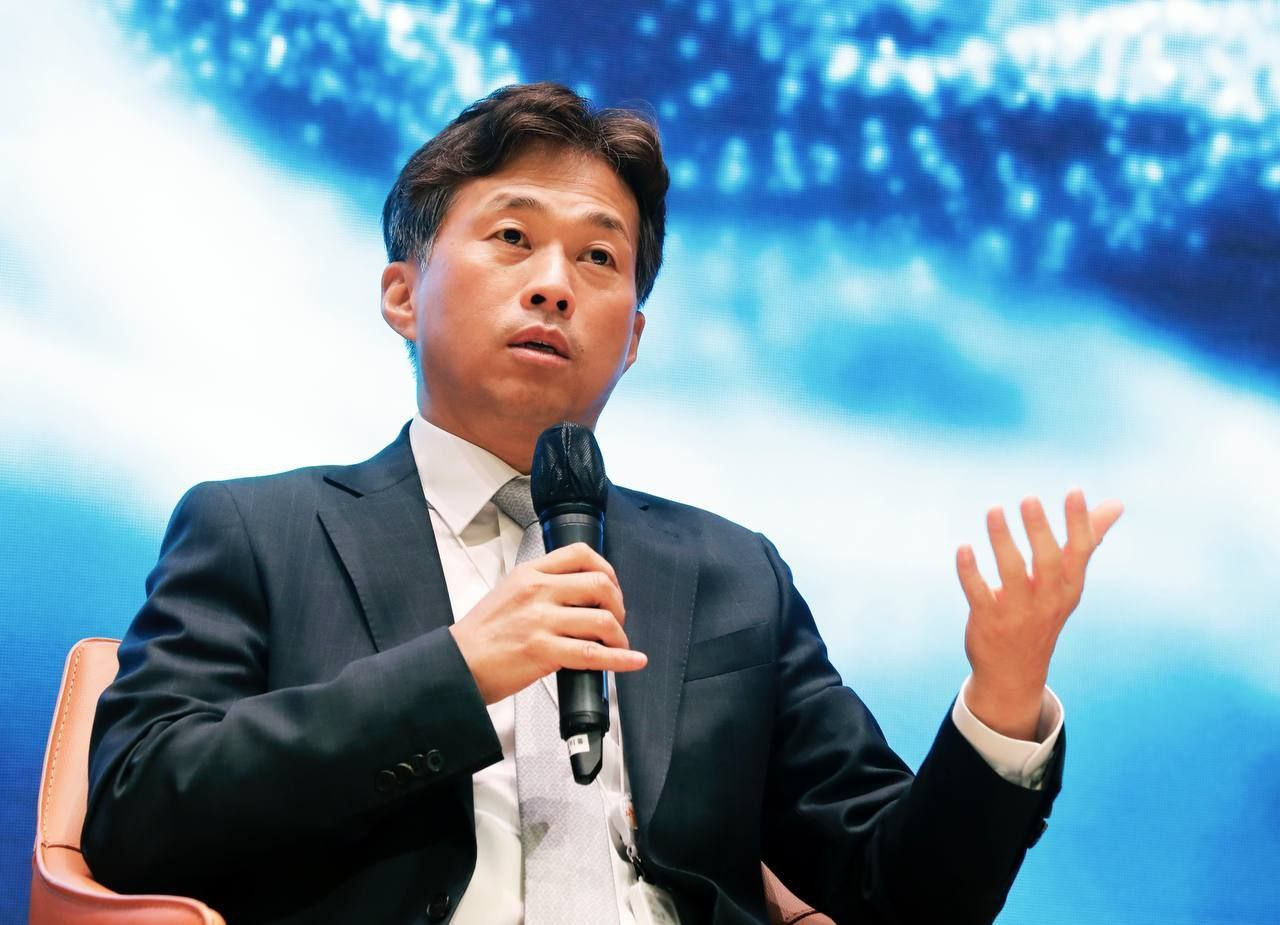'Our HBM chips are sold out until 2025': SK hynix CEO
Key supplier for Nvidia dismisses oversupply concerns, citing order-driven production
By Jo He-rimPublished : May 2, 2024 - 15:11

SK hynix on Thursday said that its high-bandwidth memory chips have already sold out until 2025, boasting its leadership in the advanced memory chip market for artificial intelligence.
"Demand for ultra-fast, high-capacity and low-power memory products for AI applications is expected to see explosive growth,” said SK hynix CEO Kwak Noh-jung during a press conference held at the company’s headquarters in Icheon, Gyeonggi Province.
“Our HBM chips from the 2024 output have already sold out, while those for 2025 are also almost sold out.”
Currently, the company's key client is Nvidia, whose graphics-processing units power high-performance computing for AI systems.
Kwak said that the company will start producing samples of the new 12-stack HBM3E this month, with plans for mass production in the third quarter of this year.
"HBM did not come out of nowhere. It is built on our cutting-edge DRAM chip technology. We were the first mover to invest in the technology in 2012 and introduce the world’s first HBM in 2013,” he said.
The accumulative sales of HBM chips from 2016 to 2024 exceeded $10 billion.
Kwak also attributed the company’s top presence in the market to the extensive network SK Group Chairman Chey Tae-won has built over the past few years with global tech giants.
SK hynix President Kim Ju-seon, in charge of AI Infra, also offered a rosy outlook for growth, saying HBM chips will make up a bigger part of the total memory chip market in the coming data-centric AI era.
"The total volume of data generated globally in the AI era is forecast to jump to 660 zettabytes in 2030, from 15ZB in 2014. One ZB is equivalent to 1 billion terabytes," Kim said.
"In terms of value created, the ratio of AI memory such as HBM and high-capacity DRAM will jump from 5 percent in 2023 to 61 percent in 2028.”
Kim said that the rising demand for AI applications is also expected to drive up the growth of the conventional memory chip business, a boon for SK hynix’s NAND business.
He also said that the company’s HBM has a competitive edge over rivals as it uses an advanced packaging technology, called MR-MUF, which cuts down on energy.
SK hynix said it is also ramping up investment to boost its chip production. Last week, the company announced a plan to spend some 50 trillion won ($36 billion) to expand production facilities at home and build a new packaging plant in the US.
Kwak dismissed concerns about possible oversupply, saying that the HBM market will evolve to be "order-driven."
"It is important to understand that sales of HBM are different from conventional commodities, in that we make the product after we get the order from the customers. Our investment and production plans are based on specific orders, this cuts out the possibility of oversupply," he said.
"From the envisioned HBM4 chips, we believe custom-based orders will increase and, ultimately, the business will become order-driven."
On its operation plan in China, the chipmaker said it will maintain close ties with Chinese clients and come up with a long-term operation strategy for its manufacturing facility in Dalian, China.
"We have been largely focusing on the US market, but China is also an important market with great potential," Kwak said.
"Having secured clients in the mobile and PC sector, I believe we have a strong foothold in the Chinese market. And for data centers, we have our NAND flash chip affiliate Solidigm, so we expect to create synergy to effectively target the Chinese market."
SK hynix, the world's second-largest chipmaker, is the HBM leader with 50 percent market share, followed by crosstown rival Samsung Electronics with 47 percent and Micron Technology with 3 percent.



















